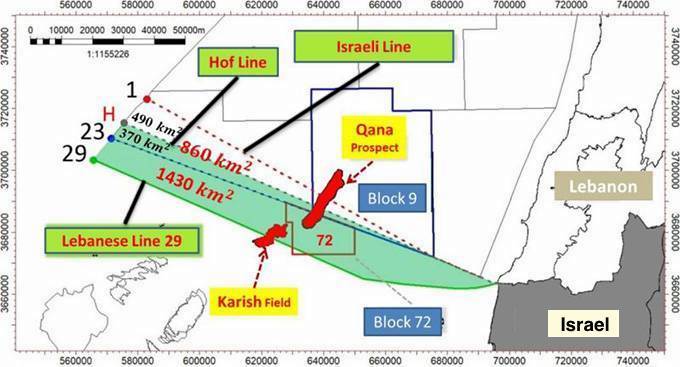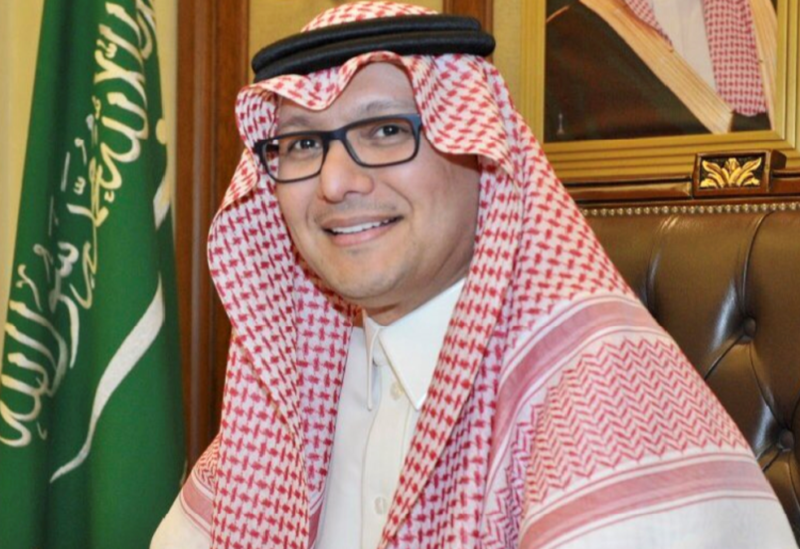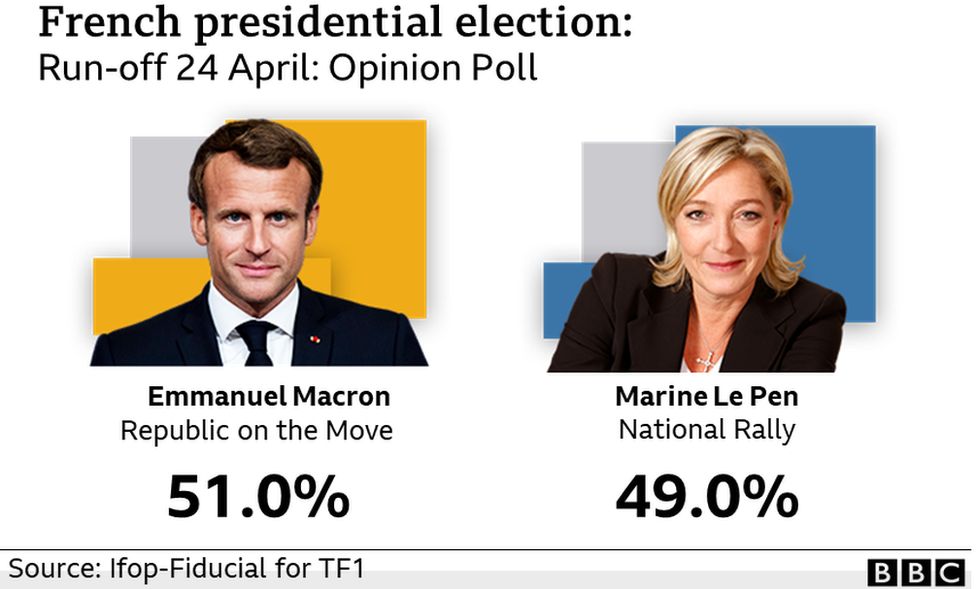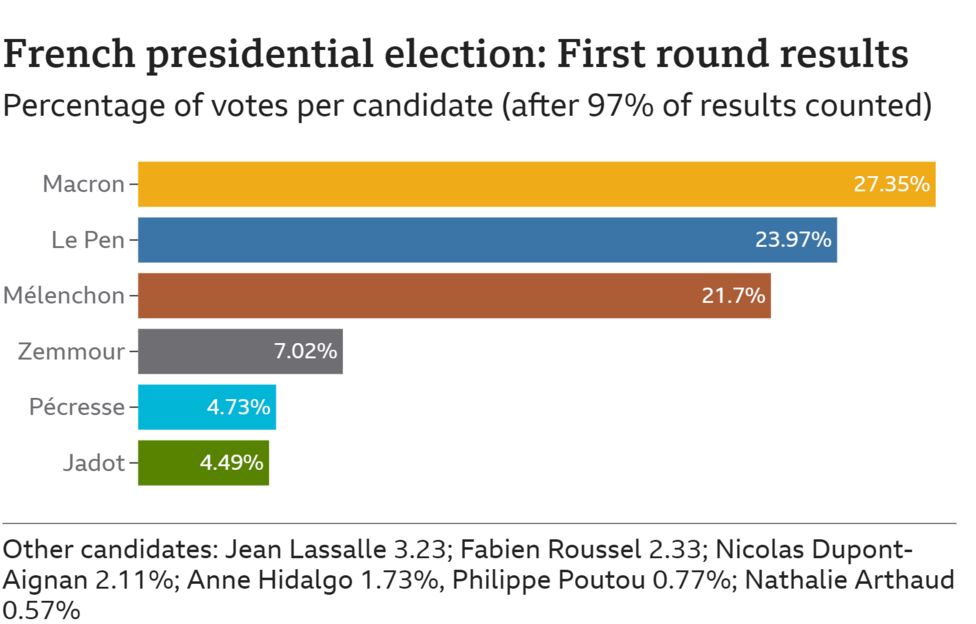
By Nicholas Noe -- responsiblestatecraft.org -- When President Biden appointed his personal friend and former Obama administration energy coordinator Amos Hochstein as his own energy envoy last summer, it seemed that the decades-old deadlock between Lebanon and Israel over their sea boundary, and potentially tens of billions of dollars in energy resources, might finally be resolved. Hochstein was assumed to be trusted by the Israelis (he was born in Israel and served in the IDF in the early 1990s). He was perceived positively by some of the main Lebanese actors as a foe of a former U.S. envoy, Ambassador Frederic Hof, who had tabled a deal ten years before known as the “Hof Line” boundary that was widely seen in Lebanon as exceptionally unfair. And he came with a deep background in the complexities of the energy sector.
Perhaps most importantly, however, the Biden administration seemed hungry to claim a success in the Arab-Israeli conflict. Although a mutually agreed-upon sea boundary between Lebanon and Israel would fall far short of any Abraham Accord-type arrangement, such a deal would represent a UN-recognized boundary between a democratically elected Arab government and Israel. Given the extensive power of the armed Lebanese political party Hezbollah, which Israel considers its most formidable non-state enemy, the removal of a large offshore area from the regular military exchanges between the two sides onshore would also help to structurally diminish the prospects of another devastating war in the Middle East, something the Biden administration very much wants to avoid.
Unfortunately, eight months on, according to several senior Lebanese officials directly involved in the negotiations, the deal that Hochstein unveiled a few weeks ago in Beirut, one which apparently has Israel’s blessing, falls far short of Lebanon’s minimum acceptable position. As a result, the talks are in imminent danger of collapsing, perhaps in the coming weeks. Asked about this prospect, the State Department and U.S. Embassy in Beirut both declined to comment.

by Najia Houssari -- arabnews.com -- BEIRUT: Saudi Ambassador Walid Bukhari praised Lebanese Prime Minister Najib Mikati’s efforts to protect his country and restore relations with the Kingdom. It came as the ambassador held meetings throughout the day with Lebanese leaders on Monday, concluding with a grand iftar held at the Saudi Embassy in Beirut for Lebanese national figures, including Mikati and other former prime ministers. The improvement of Saudi diplomatic activity has an important political dimension in Lebanon, with the country preparing for parliamentary elections. Hezbollah’s rush to help its allies win an overwhelming majority in preparation for holding presidential elections in its favor is offset by the opposition currently finding itself fragmented. At the end of October, Saudi Arabia summoned its ambassador to Lebanon for consultations and demanded the departure of the Lebanese ambassador from the Kingdom within 48 hours. The rapid deterioration of diplomatic relations between the two states came against the background of offensive statements made by former Lebanese Information Minister George Kordahi about the Kingdom.
Riyadh accused Hezbollah of “controlling the decision (making) of the Lebanese state, turning Lebanon into an arena and launching pad for implementing (the) projects of countries that do not wish the best for Lebanon and its brotherly people, who — from all sects and religions — have historical ties with the Kingdom.” Lebanon’s Grand Mufti Sheikh Abdul Latif Derian, meanwhile, welcomed the return of the Saudi ambassador to Beirut. During his meeting on Monday with the ambassador, he stressed the importance of maintaining the special relationship with the Gulf Cooperation Council states, particularly Saudi Arabia.
BEIRUT (Reuters) – Lebanese Prime Minister Najib Mikati said on Monday he will visit Saudi Arabia during the Muslim holy month of …

By Paul Kirby - bbc.com -- Emmanuel Macron has won the first round of the French election and far-right rival Marine Le Pen will fight him for the presidency for a second time. "Make no mistake, nothing is decided," he told cheering supporters. In the end, he won a convincing first-round victory, but opinion polls suggest the run-off could be much closer. Ms Le Pen called on every non-Macron voter to join her and "put France back in order". With 97% of results counted, Emmanuel Macron had 27.35% of the vote, Marine Le Pen 23.97% and Jean-Luc Mélenchon 21.7%.
Kingmaker on far left
Veteran far-left candidate Jean-Luc Mélenchon polled even better than five years ago and now has the unlikely role of kingmaker. "You must not give a single vote to Marine Le Pen," he warned his supporters, but unlike other candidates, he pointedly did not back the president instead. Later in the evening, Mélenchon activists gathered outside his campaign HQ thinking he might even come second, but it was not to be. Making up more than a fifth of the vote, Mélenchon voters could decide the final round of this election, yet many of them may just sit the second round out and abstain.
Khazen History


Historical Feature:
Churches and Monasteries of the Khazen family

St. Anthony of Padua Church in Ballouneh
Mar Abda Church in Bakaatit Kanaan
Saint Michael Church in Bkaatouta
Saint Therese Church in Qolayaat
Saint Simeon Stylites (مار سمعان العامودي) Church In Ajaltoun
Virgin Mary Church (سيدة المعونات) in Sheilé
Assumption of Mary Church in Ballouneh
1 - The sword of the Maronite Prince
2 - LES KHAZEN CONSULS DE FRANCE
3 - LES MARONITES & LES KHAZEN
4 - LES MAAN & LES KHAZEN
5 - ORIGINE DE LA FAMILLE
Population Movements to Keserwan - The Khazens and The Maans
ما جاء عن الثورة في المقاطعة الكسروانية
ثورة أهالي كسروان على المشايخ الخوازنة وأسبابها
Origins of the "Prince of Maronite" Title
Growing diversity: the Khazin sheiks and the clergy in the first decades of the 18th century
Historical Members:
Barbar Beik El Khazen [English]
Patriach Toubia Kaiss El Khazen(Biography & Life Part1 Part2) (Arabic)
Patriach Youssef Dargham El Khazen (Cont'd)
Cheikh Bishara Jafal El Khazen
Patriarch Youssef Raji El Khazen
The Martyrs Cheikh Philippe & Cheikh Farid El Khazen
Cheikh Nawfal El Khazen (Consul De France)
Cheikh Hossun El Khazen (Consul De France)
Cheikh Abou-Nawfal El Khazen (Consul De France)
Cheikh Francis Abee Nader & his son Yousef
Cheikh Abou-Kanso El Khazen (Consul De France)
Cheikh Abou Nader El Khazen
Cheikh Chafic El Khazen
Cheikh Keserwan El Khazen
Cheikh Serhal El Khazen [English]
Cheikh Rafiq El Khazen [English]
Cheikh Hanna El Khazen
Cheikha Arzi El Khazen
Marie El Khazen
